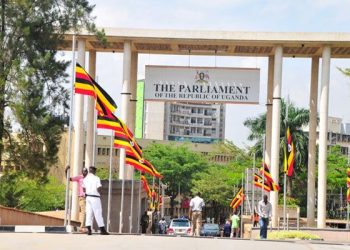The National Resistance Movement (NRM) caucus yesterday voted to throw out the Administration of Parliament Bill, 2019, saying it weakens the essence of a multiparty dispensation.
Speaking to our reporter after the party caucus meeting yesterday, Government Chief Whip Ruth Nankabirwa said the Bill contravenes Article 72 sub-sections 4 and 5 of the Constitution.
The Article creates the positions of Speaker, Deputy, and Leader of Opposition in Parliament, Government Chief Whip but not the deputies.
“We discovered that it would first require Parliament to amend the Constitution and insert these positions proposed in the Bill, for example the deputy chief whips and the dean of independents in the Constitution,” she said.
Nankabirwa convened the caucus meeting to seek their views on the Bill currently being scrutinised by the legal and parliamentary affairs committee. Nankabirwa said she needed the members’ views before appearing before the committee to give her views.
Tabled by a private member, Andrew Aja Baryayanga (Kabale Municipality) and seconded by Medard Sseggona (Busiro East), the Bill seeks to have the Leader of Opposition, Chief Whip and their deputies elected by opposition lawmakers and serve a term of five years.
The Bill also provides for the party with the greatest numerical strength to nominate three names each for the two positions and their deputies, who then shall be subjected to a vote by all opposition MPs. The Bill which was tabled in February, has since set tongues wagging over its provisions that seek to fundamentally change the manner in which influential office bearers at Parliament will henceforth assume office.
Opposition MPs have opposed the Bill, saying it is meant to undermine the very essence of a multiparty political dispensation. In one of the retreats in Entebbe, the Opposition reportedly tried to convince Sseggona to drop the Bill to no avail.
Sseggona and Aja contend that the Bill is informed by the need to draw a line under the current situation where Parliament is held hostage by forces outside its precincts over which it has no influence. Nankabirwa said the Bill was also rejected because it had financial implications on the Government since it creates more positions.
“This means we have to change the budget to cater for those appointed in the new positions,” she said.






























































